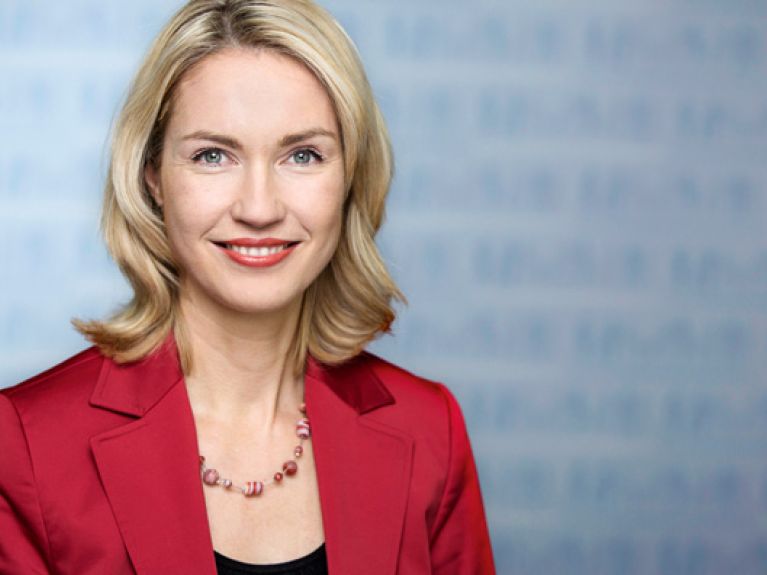Innovative ideas for combating radicalisation
Germany is counting on civil society and cooperation to prevent terrorism.

What are we to do if our own son, a schoolgirl or a Koranic school student is at risk of drifting into Islamist extremism? In Germany, people who see signs of someone in their immediate environment turning to potentially violent Salafism are unsure about whom to approach with their concerns. Shame, uncertainty or the fear of overhastily criminalising the person in question – all these things can prevent them from taking action. The counselling service Wegweiser (Signpost) offers help in situations of this kind. “The people who come to us are not only worried parents, but also members of the Salafist scene who are looking for a way out,” says Islam scholar Michael Kiefer, one of Wegweiser’s committee members. The staff there analyse the situation of the people affected, offer psychological support and arrange practical assistance from educators, Islam scholars and extremism experts at public authorities, mosques or other initiatives. Kiefer emphasises that the whole process is “absolutely confidential and anonymous”.
The prevention and dropout programme is funded by the State of North Rhine-Westphalia‘s Interior Ministry. The project has been operating in Dusseldorf, Bochum and Bonn since March 2014. In 2015, there are plans to introduce additional counselling services in Wuppertal, Cologne, Duisburg and other cities, given the very positive response to the Wegweiser concept – the first of its kind in Germany. The hotline receives a number of calls every day, says Kiefer. The importance of viable ideas like these to prevent radicalisation was demonstrated by the attacks on the French satirical magazine Charlie Hebdo and a Copenhagen synagogue in early 2015. Radical Islam does not stop at Europe’s door and is using all the resources of an interconnected world to recruit new supporters.
According to the Federal Office for the Protection of the Constitution, in Germany alone some 6,300 people are part of the radical Islamic Salafist scene. They are attracted, among other things, by online propaganda specifically designed to appeal to young people – by aestheticising violence, promising social cohesion and heroising fighters. Of the approximately 600 people who have so far left Germany and travelled to Syria or Iraq to support the terrorist organisation Islamic State, around 200 have since returned home. The authorities also suspect that a large number have left the country undetected.
In early February 2015, the Federal Government responded by passing new legislation designed to prevent attacks by radical Islamists. Under this new law, anyone leaving Germany to join a terrorist training camp will in future be liable to prosecution. Also planned are effective sociopolitical measures to tackle the roots of the problem – by homing in on the breeding grounds for radicalism. Earlier, between 2010 and 2013, Germany funded 40 pilot projects to prevent radicalisation, 22 of them designed to combat Islamist extremism. They offered information events and workshops for young people with the aim of making them “ambassadors of democratisation and enlightenment” as well as organising training courses at schools.
To expand and complement such proven strategies, the Federal Government has now once again pledged more support for radicalisation prevention measures. “We need people willing to stand up for democracy and diversity – right across Germany,“ said Federal Minister of Family Affairs Manuela Schwesig in January. A robust infrastructure is needed to support these people, she added, which is why the federal programme “Demokratie leben!” (Living Democracy) was launched in 2015. This year, the Federal Ministry of Family Affairs will invest 40.5 million euros – more money than ever before – in regional networks, counselling services, pilot projects and conferences. The projects being supported include working with the parents of the young people affected and providing coaching for young perpetrators of politically or religiously motivated violence.
The need to establish direct contact with the people affected and their social milieu and to work together with them is quite obvious: according to studies by the Federal Office for the Protection of the Constitution, many of the frequently young radicalised perpetrators of violence come from disadvantaged backgrounds. Many of them have rarely experienced respect or success – or received support or counselling in dealing with difficult life situations.
The City of Düsseldorf could provide positive models for some of the future programmes: besides the Wegweiser initiative, other innovative concepts have already proved successful there – for example, the training programme “Imame zu Demokratiebotschaftern” (Making Imams Ambassadors of Democracy). The project was jointly developed by North Rhine-Westphalia‘s State Agency for Civic Education, Dusseldorf Police Headquarters and the Deutsch-Islamische-Moschee-Stiftung Düsseldorf (German-Islamic Mosque Foundation Düsseldorf). Imams had suggested cooperating with the Düsseldorf police. Officers are now training Muslim religious scholars to serve as contact persons who are able to mediate democratic values in a sound and objective manner. “Unlike the police and many other institutions, interested and engaged imams are present in places where this sort of prevention work is possible,” says Carmen Teixeira of North Rhine-Westphalia‘s State Agency for Civic Education. The work has already paid off, she believes, but the imams still need support – not only from their own communities but from the German society they live in. ▪

